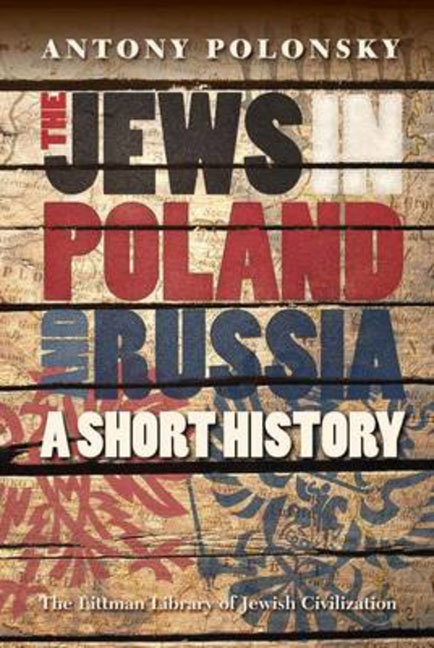Book contents
- Frontmatter
- Dedication
- Preface
- Acknowledgements
- Contents
- List of Maps
- Note on Transliteration
- Note on Place Names
- Maps
- Introduction
- 1 The Polish–Lithuanian Background
- 2 Attempts to Transform and Integrate the Jews, 1750–1881
- 3 The New Jewish Politics, 1881–1914
- 4 Social and Religious Change, 1750–1914
- 5 The First World War and its Aftermath
- 6 The Jews in Poland between the Two World Wars
- 7 Jews in Lithuania between the Two World Wars
- 8 Jews in Soviet Russia and the Soviet Union, 1921–1941
- 9 War and Genocide, 1939–1945
- 10 From the End of the Second World War to the Collapse of the Communist System
- 11 Jews in Eastern Europe and Russia since the End of Communism
- Conclusion
- Postword
- Glossary
- Notes
- Bibliography
- Index
Conclusion
- Frontmatter
- Dedication
- Preface
- Acknowledgements
- Contents
- List of Maps
- Note on Transliteration
- Note on Place Names
- Maps
- Introduction
- 1 The Polish–Lithuanian Background
- 2 Attempts to Transform and Integrate the Jews, 1750–1881
- 3 The New Jewish Politics, 1881–1914
- 4 Social and Religious Change, 1750–1914
- 5 The First World War and its Aftermath
- 6 The Jews in Poland between the Two World Wars
- 7 Jews in Lithuania between the Two World Wars
- 8 Jews in Soviet Russia and the Soviet Union, 1921–1941
- 9 War and Genocide, 1939–1945
- 10 From the End of the Second World War to the Collapse of the Communist System
- 11 Jews in Eastern Europe and Russia since the End of Communism
- Conclusion
- Postword
- Glossary
- Notes
- Bibliography
- Index
Summary
SIMON DUBNOW, in his Nationalism and History: Essays on Old and New Judaism, has described the history of the Jews since the beginning of the diaspora as that of a succession of autonomous centres. The centre that developed in Poland– Lithuania from the middle of the thirteenth century was one of the most remarkable and creative. In the years after 1750 within its borders hasidism emerged and became a major religious revival, its mitnagdic opponents created the great Lithuanian yeshivas, Hebrew and Yiddish literature flourished, and new political movements, above all Zionism and Jewish socialism, emerged and transformed the Jewish political landscape.
The history of the Jews of this area in the short twentieth century, between the outbreak of the First World War and the collapse of communism in Europe, has been tragic. In 1914 two-thirds of the world's Jews lived here; today 80 per cent live either in the United States or in Israel, and the communities in Russia, Poland, Ukraine, Lithuania, and Belarus are small and declining. That decline is traced in this book. It was the result of local integral nationalism, the devastating impact of the genocidal policies of Nazi Germany, and the longer-term destructive effects of communist rule, particularly in its Stalinist incarnation.
A number of contradictory processes may be observed in the evolution of Jewish life in eastern Europe. In the years after 1900 a group of major Polish Jewish and Russian Jewish writers emerged, writing both in the Jewish languages and in those of the larger society. Polish literature in the twentieth century cannot be understood without taking into account the works of writers such as Bolesław Les´mian, Julian Tuwim, Antoni Słonimski, and Bruno Schulz. Of the four Russian-language writers who have received the Nobel Prize in Literature, two, Boris Pasternak and Iosif Brodsky, were of Jewish origin. Osip Mandelstam and Isaac Babel, though their lives were cut short, are also writers of world stature.
The Polish Jewish and Russian Jewish symbiosis, comparable to similar phenomena in the German-speaking lands and the United States, was, however, more limited. The absence of constitutional government in most of the area, the size of the Jewish community and the persistence within it of suspicion and fear of the outside world, and the reluctance of governmental agencies, religious authorities, and significant sections of the local populations all impeded the process of Jewish integration.
- Type
- Chapter
- Information
- The Jews in Poland and Russia: A Short History , pp. 463 - 465Publisher: Liverpool University PressPrint publication year: 2013

